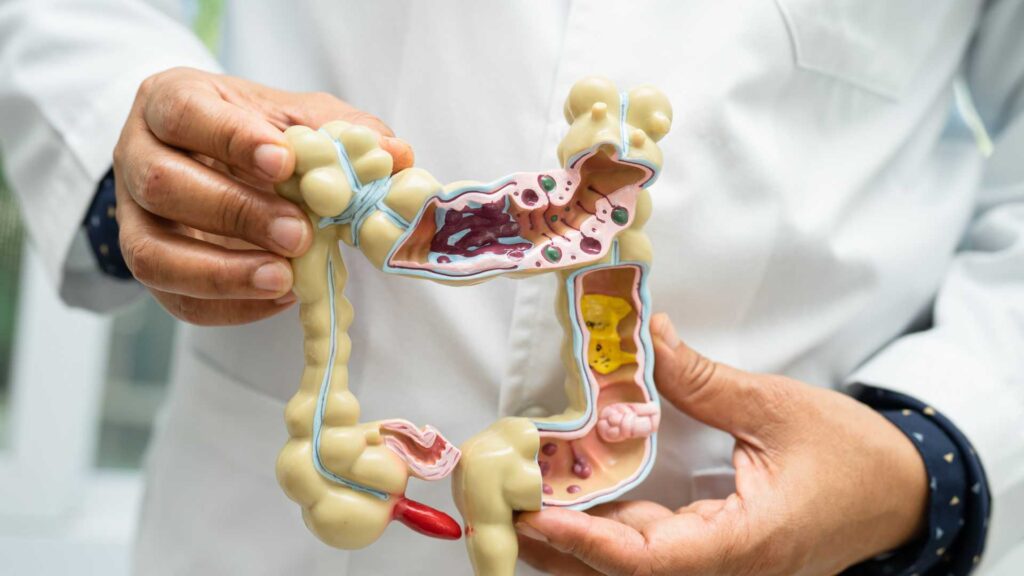Table of Contents
- What is Gut Health?
- Importance of a Healthy Gut
- Signs of an Unhealthy Gut
- Diet and Gut Health
- Lifestyle Tips for Gut Health
- Probiotics and Prebiotics
- When to See a Doctor
- Conclusion
What is Gut Health?
The balance and functionality of the different microorganisms in the digestive tract are called gut health. These microorganisms, which include bacteria, fungi, and viruses, play an indispensable role in the digestive process, breaking down food, absorbing nutrients, and protecting the body from harmful pathogens. A robust gut contributes significantly to a strong immune system, cardiovascular health, brain health, improved mood, effective digestion, and even quality sleep patterns. However, disruptions in this balance can lead to a myriad of health issues. If you’re experiencing digestive discomfort or want to ensure your gut is in top shape, seeking some digestive help could be beneficial. Understanding gut health is essential for preventing and addressing various health issues.
Importance of a Healthy Gut
The significance of a healthy gut cannot be overstated, as it has far-reaching impacts on overall health and well-being. A well-functioning gut can prevent common digestive issues such as bloating, constipation, and indigestion. Moreover, it aids in efficiently absorbing essential nutrients, ensuring the body gets the vitamins and minerals needed to function optimally. The immune system mainly benefits from a healthy gut, as it helps fend off harmful bacteria and viruses. Recent studies have also suggested a strong link between gut health and mental well-being, highlighting how a balanced gut can improve mood and cognitive functions. You can read this detailed Harvard Health article for further insights on the benefits of maintaining a healthy gut.
Signs of an Unhealthy Gut
The first step to healing and preserving general health may be identifying the symptoms of a dysfunctional digestive system. There are several ways in which symptoms can appear, such as persistent abdominal pain or bloating, as well as accidental weight fluctuations in either direction. Common symptoms include acne, rashes on the skin, persistent fatigue, and sleep disturbances. Sometimes autoimmune diseases—conditions in which the body’s immune system attacks its tissues—are brought on by an unhealthy gut. Addressing these symptoms early by seeking medical advice and making dietary and lifestyle changes can significantly improve gut health and overall well-being.
Diet and Gut Health
A big part of maintaining gut health is what you put in your mouth. Beneficial bacteria in your digestive tract can grow when you eat various fruits, vegetables, whole grains, and other high-fiber foods. Conversely, diets high in sugar and unhealthy fats can encourage the growth of harmful bacteria, causing an imbalance that could lead to digestive problems. By incorporating a range of foods into your diet, you can preserve gut health and ensure you receive a wide variety of essential nutrients for good health. Furthermore, drinking lots of water to stay hydrated can help digestion and nutrient absorption.
Lifestyle Tips for Gut Health
Besides diet, several lifestyle choices can contribute to optimal gut health. Here are a few practical tips:
- Maintain a balanced diet with diverse foods:Eating fruits, vegetables, lean proteins, and whole grains can promote a healthy gut microbiome.
- Stay hydrated by drinking plenty of water:Water helps keep your gut healthy by assisting with digestion and nutrient absorption.
- Exercise regularly:Physical activity can stimulate the gut and improve digestion, making it essential to maintaining digestive health.
- Manage stress:A long-term stressor may hurt your gut health. Deep breathing exercises, yoga, and meditation are examples of stress-reduction methods.
- Avoid smoking and limit alcohol consumption:Excessive alcohol consumption and smoking can both damage the lining of your stomach and upset the delicate balance of good bacteria.
Probiotics and Prebiotics
To keep your gut microbiome in good shape, ensure your diet includes probiotics and prebiotics. Probiotics are live, healthy bacteria that can be obtained as supplements or by eating fermented foods like kimchi, kefir, yogurt, and sauerkraut. These probiotics help replenish the good bacteria in your gut, ensuring a balanced microbiome. Prebiotics, on the other hand, are types of fiber that feed the friendly bacteria already present in your gut. Foods rich in prebiotics include garlic, onions, bananas, and asparagus. Together, probiotics and prebiotics support a thriving gut environment, enhancing digestion, nutrient absorption, and immune function.
When to See a Doctor
Suppose you experience persistent digestive issues, such as chronic stomach pain, severe bloating, or frequent diarrhea. These persistent symptoms may occasionally be a sign of more severe illnesses like inflammatory bowel disease (IBD) or irritable bowel syndrome (IBS). Prompt intervention has the potential to avert complications and enhance health results. A qualified medical practitioner can make an accurate diagnosis and suggest a personalized treatment plan to help you improve your general health and gut health.
Conclusion
Maintaining a healthy gut is crucial for overall well-being. By paying attention to diet, lifestyle, and potential warning signs, you can support your digestive health and, in turn, your entire body’s function. Remember, minor changes to your daily routine can significantly improve your gut health. Whether incorporating more fiber-rich foods, staying hydrated, managing stress, or seeking professional advice for persistent issues, taking proactive steps can ensure your gut remains in optimal health.

















